Silver River

Brief Synopsis
Cast & Crew
Raoul Walsh
Errol Flynn
Ann Sheridan
Thomas Mitchell
Bruce Bennett
Tom D'andrea
Film Details
Technical Specs

Synopsis
During the Civil War, Union soldier "Mike" McComb is cashiered after he ignores his orders and burns one million dollars to keep it out of Confederate hands. Mike vows that in the future, he will follow only his own orders. His first act is to organize a squad of soldiers to clean out a crooked gambling organization that is located near his camp. He and his friend, "Pistol" Porter, then confiscate the gambling equipment for themselves and head for Silver City, Nevada, to open a saloon and gambling hall. Onboard the Missouri River boat that is taking them to St. Joseph, "Banjo" Sweeney tries unsuccessfully to commandeer the equipment and warns Mike that he will be waiting for him in Silver City. Learning that beautiful Georgia Moore has hired all the available wagons to carry new mining equipment to the Silver River mine that she runs with her husband Stanley, Mike challenges the wagons' owner, Sam Slade, to a poker game and wins the wagons. When Mike arrives in Silver City, the townspeople, warned by Sweeney and Georgia, try to turn him away, but Mike opens his saloon despite their wishes. Later, he hires alcoholic lawyer John Plato Beck, and agrees to lend Stanley the wagons to carry his mining equipment in exchange for a large share in the mine. Mike is in love with Georgia and tries unsuccessfully to come between her and her husband. Upon learning that Stanley does not have the money to finish his smelter, Mike then agrees to finance that in exchange for a third interest in the mine. When Sweeney urges the miners not to accept pay vouchers in lieu of cash, the mine owners demand that Mike suggest a solution. In exchange for shares in all the mines in the area, Mike sets up a bank which trades the vouchers for cash. Mike expands his saloons and banks throughout the state, eventually attracting the attention of President Ulysses S. Grant. Grant asks the miners to produce more silver so that the U.S. can become a creditor nation, and in response, Stanley suggests that they expand mining operations to the Black Rock range of mountains. Although Mike knows that the Shoshone Indians are on the war path, he says nothing to Stanley, even when Plato reminds him that King David once sent the husband of the woman he loved to his death in battle. After Stanley is killed by the Indians, Mike builds a castle on his property. When Georgia returns from San Francisco, where she went after her husband's death, Mike marries her. The couple gives a party to show the castle to the townspeople, and a drunken Plato breaks up the party with accusations against Mike. Their faith in Mike destroyed, the miners withdraw their money from his bank, and the other owners attempt to corner the silver market. In desperation, Mike shuts down all the mines, infuriating the public. Plato, meanwhile, decides to run for the Senate. Georgia begs Mike to call off the fight and reopen the mines, and when he refuses, she leaves him. Later, a run on the bank forces Mike to declare bankruptcy. The silver syndicate, headed by Sweeney, puts up a candidate to run against Plato, and to insure his victory, Sweeney kills Plato during a speech. Mike asks the crowd to avenge Plato's death and a battle ensues. When it is over, Mike prevents the crowd from lynching Sweeney and then makes a speech promising changes in Silver City. Afterward, an impressed Georgia reconciles with Mike.

Director

Raoul Walsh
Cast

Errol Flynn
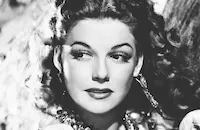
Ann Sheridan

Thomas Mitchell
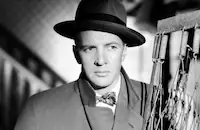
Bruce Bennett

Tom D'andrea
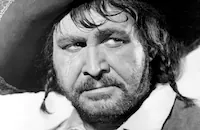
Barton Maclane
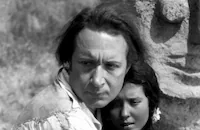
Monte Blue

Jonathan Hale
Alan Bridge
Arthur Space
Art Baker

Joseph Crehan
Norman Jolley
Harry Strang
Jerry Jerome
Frank Mccarroll
James H. Harrison
Bob Stephenson
Ross Ford
Jack Norman
Eddie Parker
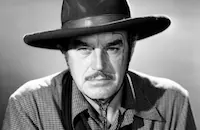
Harry Woods

Ian Wolfe
Jack Montgomery
Carl Harbaugh
Jim Ames
Buddy Burroughs
Robert Anderson
Harry Hays Morgan
Britt Wood
Lois Austin
Gladys Turney

Marjorie Bennett
Ray Montgomery
Joe Bernard
Harry Hayden
William Gould
Dick Elliott
George Chandler
Philo Mccullough
Jack W. Sommers
Ray Spiker
Dick Alexander
Bud Osborne
Pat Flaherty
Paul Burns

Dan White
Otto Reichow
Jack Davis
Harry Lamont
Lester Dorr
William Norton Bailey
George Sherwood
Grayce Hampton
Dorothy Christy
Crew
Alan Crosland Jr.
Owen Crump
Murray Cutter
Ann Del Valle
Edwin Du Par
Leo F. Forbstein
Harriet Frank Jr.
Chuck Hansen
Sid Hickox
James Leicester
Stephen Longstreet
William Mcgann
Maurice Murphy
Francis J. Scheid
Ted Smith
Max Steiner
Travilla
William G. Wallace
Jack L. Warner
Perc Westmore

Photo Collections
Film Details
Technical Specs

Articles
Silver River
Flynn plays Mike McComb a disgraced former Union soldier who becomes a professional gambler, then gets hooked up with a mining business. His best friend, Stanley Moore (Bruce Bennett), is married to a beautiful woman named Georgia (Ann Sheridan). But McComb has his sights on Moore’s wife, so he intentionally puts Stanley in a dangerous situation that gets him killed. Then McComb and Georgia hook up. This is hardly a role that one would expect to see Flynn playing, and most of the film's interest lies in seeing him behave so immorally. At least Robin Hood gave to the poor after ripping off the rich.
Director Raoul Walsh signed on to Silver River determined to keep Flynn on a short leash. He was particularly concerned about the actor's drinking, and was very strict about how much he would allow him to imbibe. Flynn, of course, felt that it was nobody's business how much he drank, so long as he showed up on the set on time. But there were even bigger powers than Walsh keeping an eye on Flynn this time around- Jack Warner himself was also on the case.
After Flynn was late to the set several times during the Silver River shoot, Warner, who obviously had had enough of his shenanigans, fired off the following memo: "If Flynn is late, if liquor is being used so that from the middle of the afternoon on it is impossible for the director to make any more scenes with Flynn, if liquor is brought on the set or into the studio we must hold Flynn legally and financially responsible for any delay in making the picture. We may go so far as to abrogate the entire contract and sue him for damages...We will never again make pictures where Flynn or any other artist becomes incoherent due to liquor or whatever it may be...This has happened repeatedly during the last pictures we have made in which Flynn has appeared and we cannot permit it any longer." Shortly thereafter, Flynn worked only half a day when he decided to start drinking during his lunch break. Then, a couple of weeks later, he insisted that he would continue to work only if the scenes were shot in chronological order, a virtual impossibility given the modus operandi of a big-time film studio. The demand may well have been the result of a drunk, but it didn't sit well with Warner Bros.
Flynn, however, wasn't the only performer on Silver River who caused a commotion via bottles of vodka. Ann Sheridan was his equal at putting it away, and the two often teamed up on the set to intentionally drive Walsh crazy. Their favorite trick was to deliver extremely off-color variations on their dialogue when they played scenes with their backs to the camera. Walsh would scream for them to stop, to little avail. This held up filming a couple of times. It's no surprise that Silver River was the last of seven films Walsh would make with Flynn.
Still, you have to wonder if Flynn was really as big a handful as his lovely co-star. Sheridan's reported cure for a hangover was eating a "mountain oyster" in the morning while a Mexican band strummed a tune on her patio. She even kept the band on location with her, so that they could play tunes while she drank! Apparently, she'd never heard of a record player.
Director: Raoul Walsh
Producer: Owen Crump
Screenplay: Stephen Longstreet
Cinematographer: Sidney Hickox
Editing: Alan Crosland, Jr.
Music: Max Steiner
Art Direction: Ted Smith
Costumes: Marjorie Best
Principal Cast: Errol Flynn (Capt. Mike McComb), Ann Sheridan (Georgia Moore), Thomas Mitchell (John Plato Beck), Bruce Bennett (Stanley Moore), Tom D'Andrea (Pistol Porter), Barton MacLane (Banjo Sweeney), Monte Blue (Buck Chevigee), Jonathan Hale (Maj. Spencer), Alan Bridge (Sam Slade), Joseph Crehan (President Grant).
BW-109m. Closed captioning.
by Paul Tatara

Silver River
Quotes
Trivia
Notes
Although SAB and onscreen credits state that this film was based on a novel by Stephen Longstreet, no information about the book has been found. Portions of the film were shot on location in Bishop, CA. Errol Flynn and his wife attended the film's world premiere in Denver.















